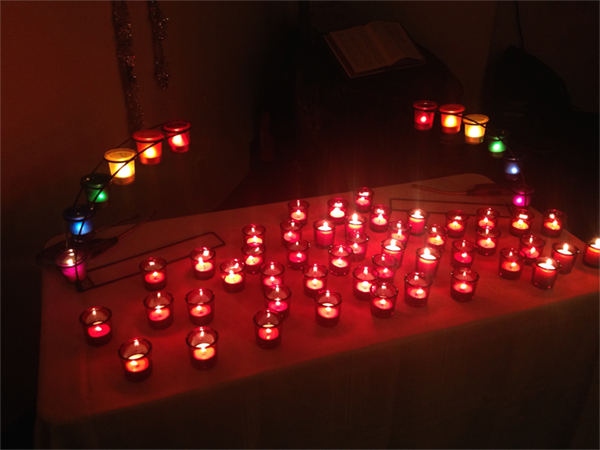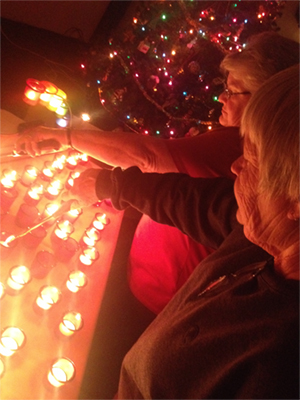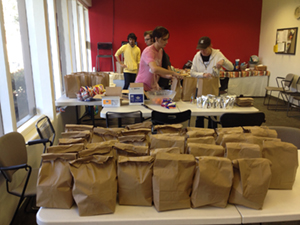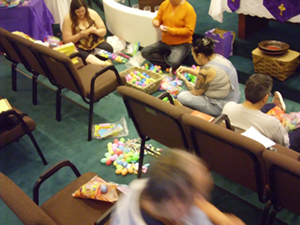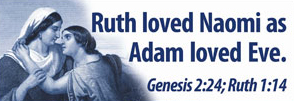Love: God, Yourself, One Another
The greatest challenge we face is getting this simple task right.
Love hurts. It is hard. It requires sacrifice. Sometimes it even means putting our own wants behind someone else's needs.
Think about a healthy parent-child relationship, one in which the parent loves their child unconditionally and would even sacrifice their own life so that their child would have a better future. This relationship is very similar to the one God has with us through Christ Jesus.
Christians believe that Jesus Christ was God's son, who lived on earth to demonstrate the example of love for the rest of humanity to follow. In addition, Jesus' death was the final atonement for the sins of all humanity. This means that your sins - translation, your imperfections and the ways in which you fail to get things right - all of them have been forgiven.
Most importantly, Jesus' love and sacrifice was for the very purpose of restoring your relationship with God so that you could live in the full knowledge of God's love for you and God's purpose for your life. Jesus knew when He was on the cross that His atonement for all sin meant that from then until eternity, you and everyone who has ever taken a breath of air on this planet could live free of the burden of your imperfections and free of the burden of having to call-out the imperfections of those around you.
![]()
The point of Jesus' death was to return the focus of humanity onto God, not the many rules of do's and don'ts that religion had created. Jesus wants you to live as He did by loving as He did: radical, inclusive, unconditional love. So in the act of Jesus' self-sacrifice on the cross on behalf of humanity, humanity now has the responsibility to live the love of Jesus and spread that love to others.
Churches are supposed to be love factories but all too often they turn away the very people that need love the most, because the people within that church community feel that somewhere along the way, they got an extra helping of God-juice and thus they are more qualified to determine who is worhty of God.
Ever been to a church like that? It's painful. It's painful because none of us are perfect and therefore how can an imperfect human being claim to be better than another AND use that claim to justify a belief that they know God better than you do.
That's not what church is supposed to be. Church is a love factory. It's a place where we take in all sorts of people with diverse experiences and backgrounds, we put them together in a place of worship and let each person let their guard down. Then, Holy Spirit comes in, lifts us all to a better place and we leave fealing filled up, refreshed, renewed.
Two things are required for this to happen: Holy Spirit and at least two people ready and willing to receive the Spirit. Once combined in worship, Holy Spirit then kicks in and helps the congregation find clarity at the individual and communal levels. Hopefully, the result is that each person is better equipped to love others and love themselves and feels more love for and from God.
Two things have to happen for the love factory to work:
1) People need to feel the love inside themselves for themselves. If you are broken, depressed, feeling left out, it is important that you find community
But what does radical, inclusive, unconditional love look like?
![]()
Think back to that parent-child relationship. A newborn baby is loved by its parents without condition. If the child is sick or healthy, sleeping or needing a change of diaper, the parent loves that child and will do anything for that child. In fact that child would be lost and eventually dead without the intervention and care the parent provides.
God's love is very similar. God doesn't love us less when we get it wrong. God doesn't tell us we have to be a certain type of person in order to receive God's love. It is given freely because we are God's creation. God has a stake in our success and our future because we are made, by design, by God from the building blocks of life that God created at the beginning of time.
If you are in a relationship, with a lover, a parent, a sibling, and in order to receive love from that person you have to do something in return (or do something in advance) then that isn't love; at least it's not unconditional love. Unconditional means just that, without conditions. If you place conditions on someone's love then it is no longer free.
So many Christians place artifical conditions on God's love. They make it seem like you have to pass a certain test in order to get into the club that is eligible to receive God's love. But this is not true! God's love, as a result of Jesus' sacrifice, is no longer in the hands of humanity to determine who is worthy to receive it. The only laws we must obey are Love God with all or heart your mind and your soul and love your neighbor as yourself.
![]()
Inclusive love is love that is open to all. Just like unconditional love is freely given to an individual without precondition, inclusive love is extended to all those around you, again, without precondition. It encourages people to expand the boundary of who is acceptable - from the people they know and are comfortable with, to the stranger and the people with whom they have challenges being in close proximity.
If you can think back to the high school cafeteria or lunch area, and imagine all the different tables where teens sit. There is an unspoken hierarchy of who sits where and who is allowed to sit with whom. Cerqin people are never welcome at some tables and a few tables are virtually off limits to most. That is not inclusivity.
Inclusivity would be to opposite scenario in which anyone could sit anywhere and when they do, they will be welcomed and engaded in conversation.
Jesus modeled inclusivity. Even His disciples were the unwanted. Matthew was a tax collector; the very scum of the earth in the eyes of many because tax collectors took from their own people and enabled the Roman Empire to continue to oppress them. Jesus not only hung out with people like Matthew, He entrusted His ministry to them.
That is the ultimate test of inclusivity. Do you let the person who is very different from you and who might be unpopular, lead, organize, contribute, share their gifts and talents? Most churches will not when it comes to LGBT persons. You can sing in the choir but don't tell anyone you are gay. You can lead youth ministry but never hold your lover's hand in church. And no, you cannot marry her in the church even though every other relationship is blessed there. IF you've experiences this in your church, then your church is not inclusive; simple as that.
![]()
Radical love is bold love. Radical love does whatever it takes to ensure that the people who need love, get love. Radical love requires action and it requires that you embrace yourself and your neighbor as an imperfect Creation worthy of equal access to God.
You don't have to be a martyr or die in the line of fire in order to be loving radically. It's really putting others first. Putting justice first. Putting equality first. Putting the hungry first. Those without freedom first. Those in dire poverty first. Those with AIDS first. The suffering first. The alone and broken first.
Radical love is seeking to restore relationship; relationship on the human level and one's relationship with God.
Radical love is not about you... but the people in need of you. It's putting them first and doing whatever it takes to uplift those in need so that they in turn can lift up others.
Radical love is the sum of us, looking to heal the broken, feed the hungry, clothe the naked, encourage the one who is down and out.
When you combine the three: Unconditional, Inclusive, Radical you get Jesus-style love.
Because there is not enough of it in the world today, we need your help. We need you to come, be a part of our radical, inclusive, unconditional, Jesus-style love so that we may do our part in making this world a better place.
